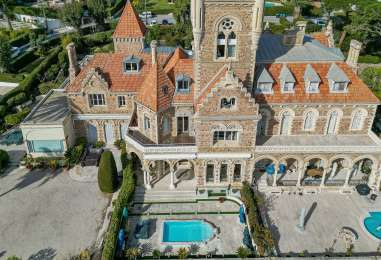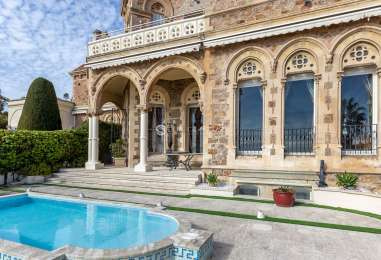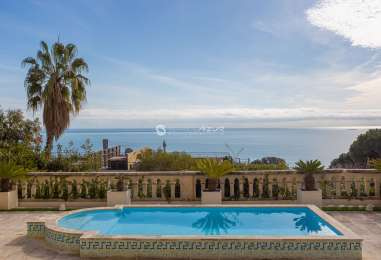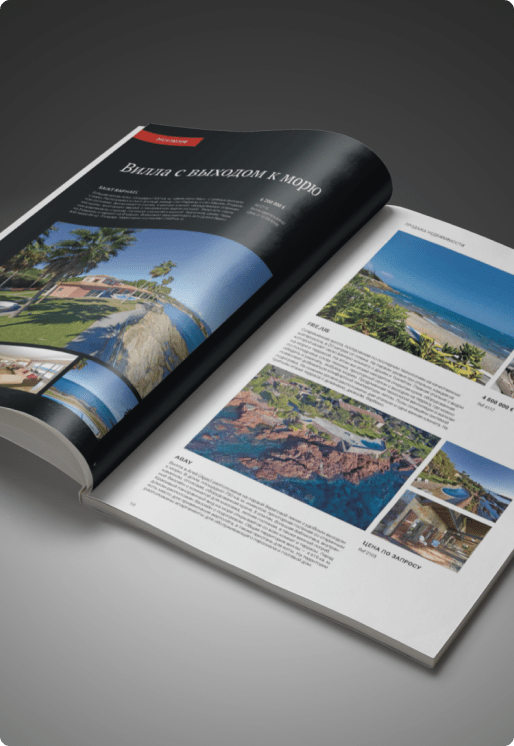






- Home
- Real Estate
- Expansive Sea View Land in Prestigious Cannes Area
Expansive Sea View Land in Prestigious Cannes Area
Available for acquisition is a vast land parcel spanning 24,854 sqm, strategically located between Super Cannes and Golfe Juan, boasting expansive views towards Cap d'Antibes. This prestigious plot offers a rare development opportunity with 12,067 sqm designated for residential building, allowing for a total living area of 2,500 sqm across potentially seven separate plots. The remaining 12,787 sqm is preserved as a green zone, enhancing the natural surroundings and privacy. The property also features the possibility to expand by acquiring an adjacent plot with an existing home. With building permits already available, this land presents an exceptional chance to develop a bespoke luxury residence or multiple units in one of the most sought-after districts in Cannes, renowned for its exclusivity and proximity to the sea. This site promises a serene and secure environment, making it a premium choice for investors and developers alike.








































































Yes, in France property insurance is mandatory in certain situations — but not in all. The overview below clarifies the key obligations depending on your status.
- If you are an owner-occupier (propriétaire occupant)
Property insurance is not legally required, but it is strongly recommended. Without coverage, you are personally liable for any damage (fire, water damage, explosion, etc.), including harm caused to neighbouring properties. Most owner-occupiers take out a multirisque habitation (MRH) policy — a comprehensive home insurance contract.
- If you are a landlord (propriétaire bailleur)
Insurance is not compulsory for the landlord. However, if the tenant is not insured, the landlord bears the financial risk in the event of fire, water damage or other incidents. For this reason, most landlords include an insurance clause in the lease agreement and request proof of the tenant’s policy.
- If you are a tenant (locataire)
Insurance is legally mandatory (Article 7 of the Law of 6 July 1989). Tenants must hold home insurance covering at least rental risks — fire, explosion and water damage. If the tenant fails to obtain a policy, the owner may terminate the lease, or purchase insurance on the tenant’s behalf and add the cost to the rent.
- If the property is part of a condominium (copropriété)
Since 2014 (Loi Alur), insurance is mandatory for every co-owner, including those who do not reside in the property. The minimum requirement is civil liability insurance (responsabilité civile) covering damage caused to neighbours or other occupants
Step-by-step guide to the homebuying process :
- Select properties and ask to organise viewing
- Visit selected properties and choose a home to buy
- Have the house inspected and ask for energy performance rating
- Make an offer. Present it to the seller and reach agreement on the price.
- Sign a promise deed – Compromis de vente
- Make a down payment of 5-10% of the sale price
- Consider your financial options, ask for mortgage
- Wait for the notary to check the transaction cleanliness
- Pay a 100 % of the amount
- Sign a sale deed and get the keys to your new home
- Get legal documents, registered in the French Land Registry, from the notary
- Register utilities and insurance policies of your new home in your name
The DPE is a real estate diagnosis that is mandatory for all properties for sale. The seller must be able to provide it before signing a purchase agreement - Compromis de vente. The DPE makes it possible to know the energy consumption and CO2 emissions of the property and includes the following data:
- Floor area (Loi Carrez) — for apartments.
- Technical diagnoses (lead, asbestos, termites, etc.).
- Electrical and gas installations.
- Heat loss, insulation performance, renewable energy production systems, if any.
- Risk of seismic movement or other natural disaster.
- Septic tank installation – for houses.
56 bis, av de la Lanterne
06200 Nice, France
+33 4 93 29 84 25
9:00 – 18:00
Nice, France (GMT +2)






